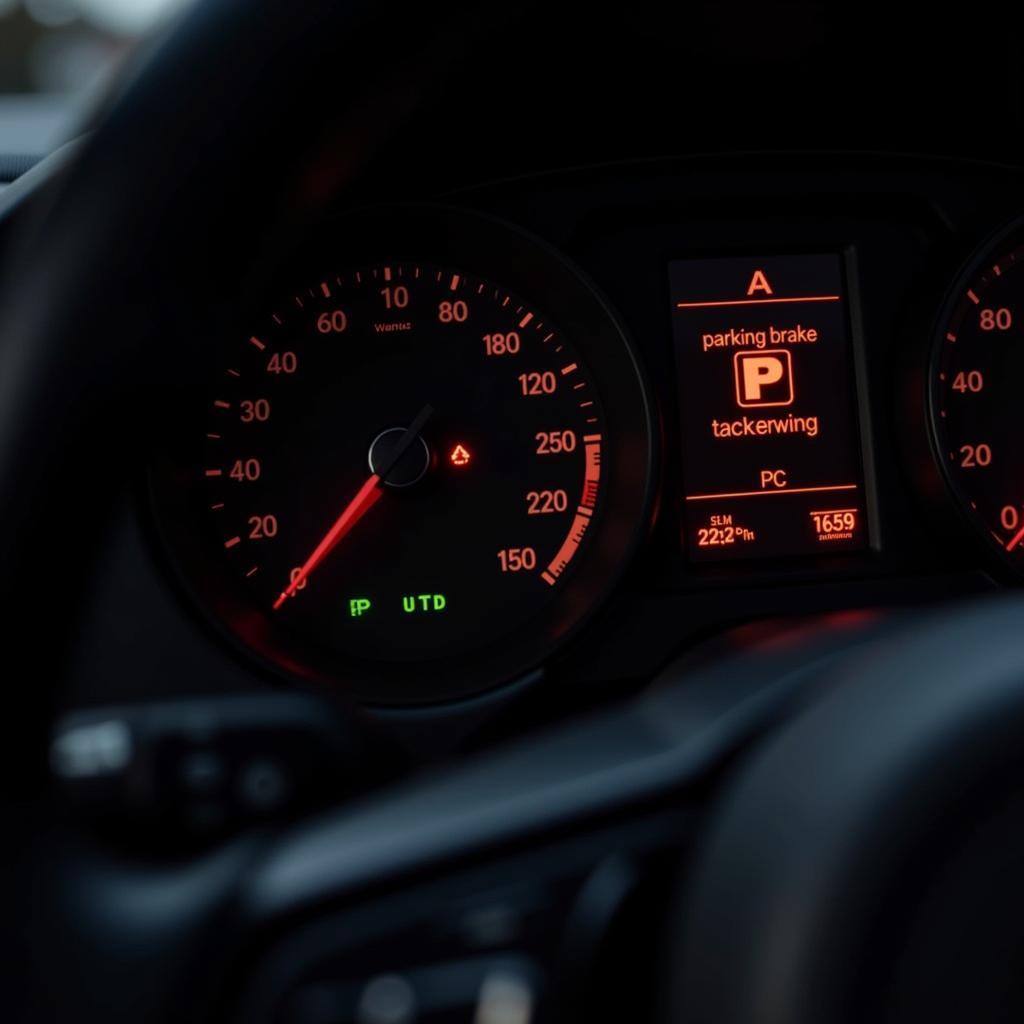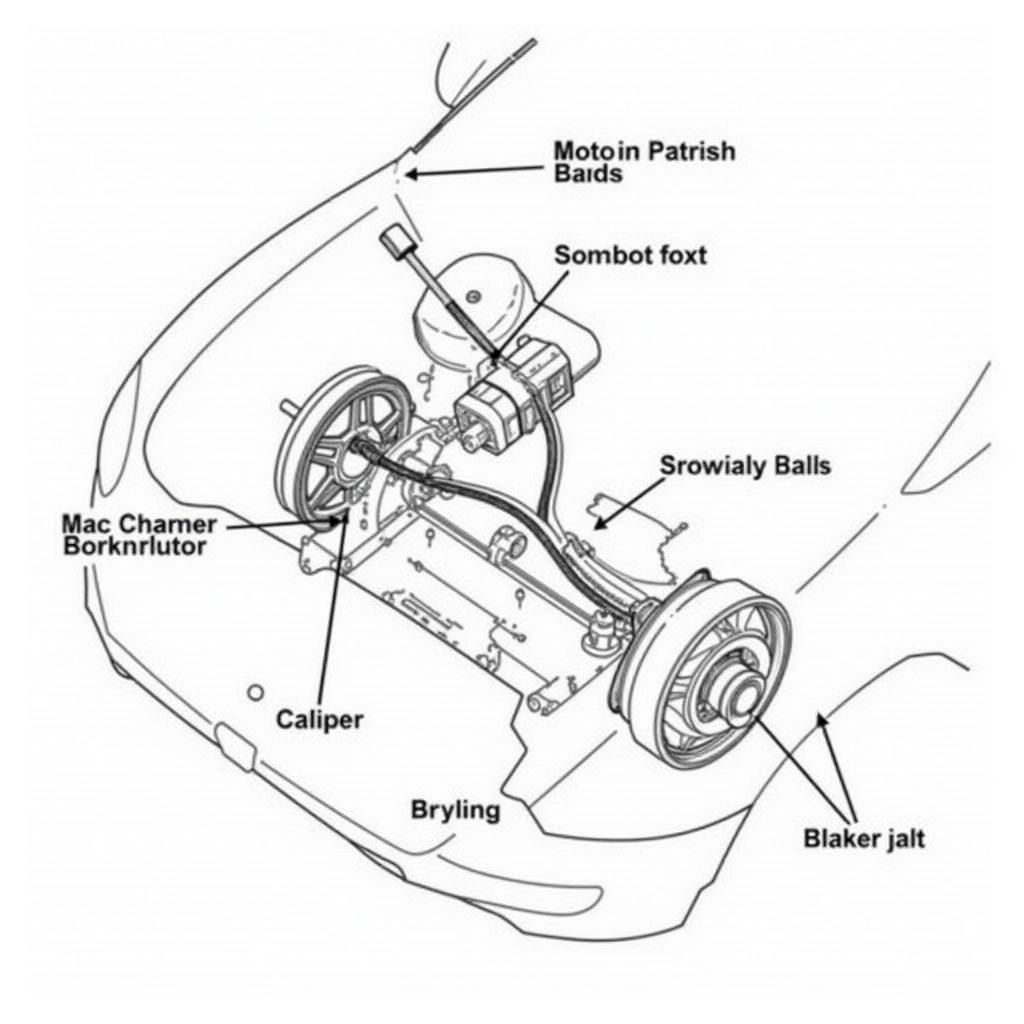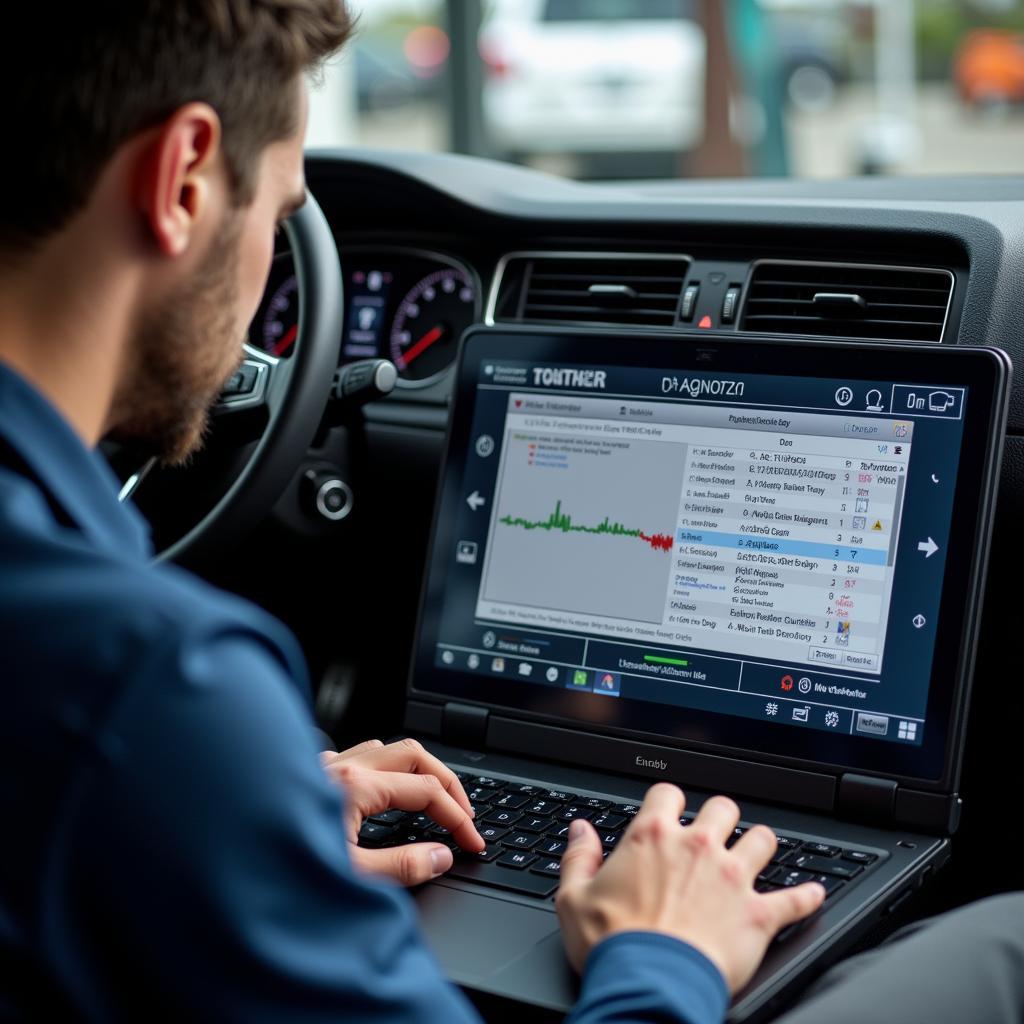The dreaded VW parking brake warning light. It can strike fear into the heart of any Volkswagen owner. Whether you’re driving a Golf, Passat, or CC, this warning light can mean anything from a minor annoyance to a serious safety issue. But don’t panic just yet. In this article, we’ll explore the common causes of a VW parking brake warning light, how to diagnose the problem, and what steps you can take to get back on the road safely.
 VW parking brake warning light on a dashboard
VW parking brake warning light on a dashboard
Understanding Your VW Parking Brake System
Before we dive into troubleshooting, it’s helpful to understand how your parking brake system works. In most modern Volkswagens, the parking brake is electronically controlled and integrated with the Electronic Stability Program (ESP). When you engage the parking brake, it activates a small motor that applies calipers to the rear brake discs, effectively locking the wheels in place.
Common Causes of a VW Parking Brake Warning
A VW parking brake warning light can be triggered by a range of issues, some simple and others more complex:
- Engaged Parking Brake: The most obvious cause is simply forgetting to disengage your parking brake. Always double-check before driving!
- Low Brake Fluid: The parking brake system shares fluid with your primary braking system. Low fluid levels can trigger the warning light.
- Faulty Brake Pad Wear Sensor: Your Volkswagen uses sensors to monitor brake pad wear. A faulty sensor can send a false signal, triggering the warning.
- Parking Brake Switch Malfunction: The switch that senses whether the parking brake lever is up or down can malfunction, sending an incorrect signal.
- Electronic Parking Brake Motor Failure: In some cases, the motor that applies the parking brake can fail, requiring replacement.
- Issues with the ESP System: As the parking brake is integrated with the ESP, problems with this system can also trigger the warning light.
 Diagram of a VW parking brake mechanism
Diagram of a VW parking brake mechanism
Diagnosing the Problem
To effectively resolve the issue, accurate diagnosis is crucial. Here are some steps you can take:
- Check Your Parking Brake Lever: Make sure it’s fully disengaged. If it feels loose or doesn’t engage properly, there might be a mechanical issue with the lever itself.
- Inspect Brake Fluid Levels: Locate the brake fluid reservoir under the hood and check the fluid level. If it’s low, add the appropriate DOT-approved brake fluid.
- Visual Inspection: Look for any visible damage to the parking brake system components, including wiring, connectors, and the motor.
- Scan for Diagnostic Trouble Codes (DTCs): A diagnostic scan tool can read error codes stored in your car’s computer, providing valuable clues about the source of the problem.
Remote Software Solutions
In some cases, the VW parking brake warning light may be triggered by software glitches or communication errors within the vehicle’s electronic systems. This is where remote software solutions can provide an effective and convenient fix.
“We’ve seen an increase in parking brake warnings that stem from software-related issues,” says Mark Johnson, a senior automotive diagnostic technician at a specialized Volkswagen repair shop. “Often, a simple software update or recalibration can resolve the issue without the need for extensive mechanical repairs.”
Remote software solutions, like those offered by specialized automotive diagnostic services, can:
- Diagnose software-related problems: By remotely accessing your car’s computer, technicians can pinpoint software glitches that might be causing the warning light.
- Perform software updates and recalibrations: They can remotely install the latest software updates to your vehicle’s parking brake system, potentially fixing known bugs or compatibility issues.
- Reset warning lights: If the warning light is triggered by a temporary glitch, a remote technician can often reset it without requiring a physical visit.
 A technician performing remote diagnostics on a VW
A technician performing remote diagnostics on a VW
When to Seek Professional Help
While some parking brake issues can be resolved with basic troubleshooting, it’s essential to seek professional help from a qualified mechanic, especially if:
- You’re uncomfortable working on your car’s braking system.
- You’ve tried basic troubleshooting steps, and the warning light persists.
- You suspect a more complex issue, such as a faulty motor or ESP module.
Attempting to repair complex brake system components yourself can be dangerous and potentially worsen the problem. Trusting a professional ensures your safety and a proper repair.
VW Parking Brake Warning: Frequently Asked Questions
Q: Can I still drive my car with the parking brake warning light on?
A: It depends. If the parking brake is not fully released, it can cause serious damage to your brakes and transmission. However, if the light is on due to a faulty sensor or other minor issues, you might be able to drive cautiously to a repair shop.
Q: How much does it cost to fix a VW parking brake warning light?
A: The cost can vary widely depending on the underlying cause. A simple brake fluid top-up might cost a few dollars, while replacing a faulty parking brake motor could cost several hundred dollars or more.
Q: Can I prevent future parking brake issues?
A: Regular maintenance, including brake fluid checks and inspections, can help prevent many parking brake issues. It’s also essential to address any warning lights promptly to avoid potential problems down the road.
Conclusion
A VW parking brake warning light shouldn’t be ignored. While it can be triggered by something as simple as low brake fluid, it could also indicate a more serious problem. By understanding the potential causes and utilizing remote diagnostic tools, you can address the issue quickly and safely. Remember, if in doubt, always consult a qualified mechanic for professional diagnosis and repair.
